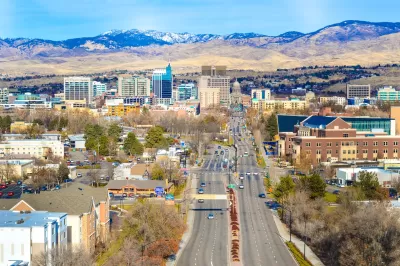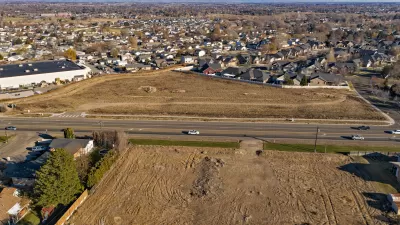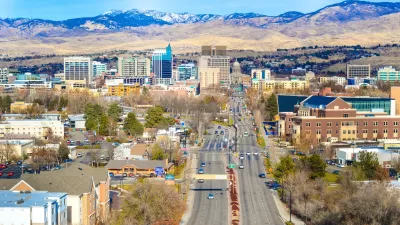A years-long process has culminated in a proposal that would encourage the creation of affordable housing, promote transit-oriented development, and position the city for less car-oriented growth.

A proposed update to the city of Boise’s zoning code aims to reimagine the Idaho city to be more sustainable, equitable, and affordable through adjusting regulations on “Building heights. Parking requirements. Neighborhood markets. Lot sizes. Transit. Mixed-use complexes.”
As Ian Max Stevenson reports in the Idaho Statesman, “Boise hopes to avoid the pitfalls of sprawl, unaffordability and car reliance that many other cities have faced” as the city grows. The revised zoning rules would permit higher density, include affordable housing incentives, decrease minimum lot sizes, and reduce parking requirements.
“While many of the zoning revisions relate to allowed uses themselves, Boise is also planning to streamline application processes for projects that planners want to see.” The new rules would incentivize adaptive reuse of older buildings and create mixed-use districts near transit corridors and other activity centers.
Critics of the plan say permitting more density outright would remove leverage from the city and could lead to the destruction of affordable housing. The city also lacks a comprehensive public transit system to encourage people to reduce their car use. Boise city planner Tim Keane acknowledges this weakness and says more transit investment is needed, but that how the city grows is a crucial component. “If you don’t have the development pattern, you’ll never have a transit system.”
FULL STORY: Boise wants more affordable housing, higher density, more transit. Here’s the plan

Planetizen Federal Action Tracker
A weekly monitor of how Trump’s orders and actions are impacting planners and planning in America.

San Francisco's School District Spent $105M To Build Affordable Housing for Teachers — And That's Just the Beginning
SFUSD joins a growing list of school districts using their land holdings to address housing affordability challenges faced by their own employees.

The Tiny, Adorable $7,000 Car Turning Japan Onto EVs
The single seat Mibot charges from a regular plug as quickly as an iPad, and is about half the price of an average EV.

Seattle's Plan for Adopting Driverless Cars
Equity, safety, accessibility and affordability are front of mind as the city prepares for robotaxis and other autonomous vehicles.

As Trump Phases Out FEMA, Is It Time to Flee the Floodplains?
With less federal funding available for disaster relief efforts, the need to relocate at-risk communities is more urgent than ever.

With Protected Lanes, 460% More People Commute by Bike
For those needing more ammo, more data proving what we already knew is here.
Urban Design for Planners 1: Software Tools
This six-course series explores essential urban design concepts using open source software and equips planners with the tools they need to participate fully in the urban design process.
Planning for Universal Design
Learn the tools for implementing Universal Design in planning regulations.
Smith Gee Studio
City of Charlotte
City of Camden Redevelopment Agency
City of Astoria
Transportation Research & Education Center (TREC) at Portland State University
US High Speed Rail Association
City of Camden Redevelopment Agency
Municipality of Princeton (NJ)





























